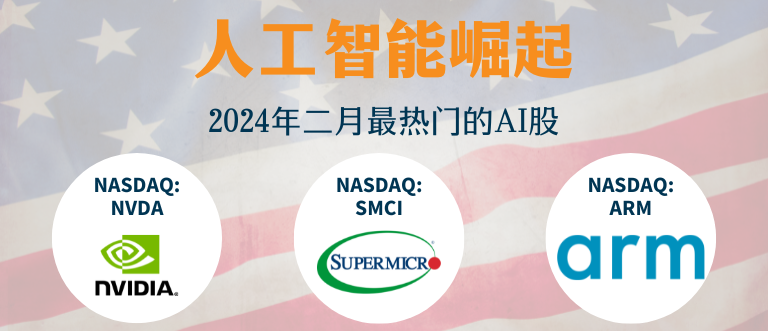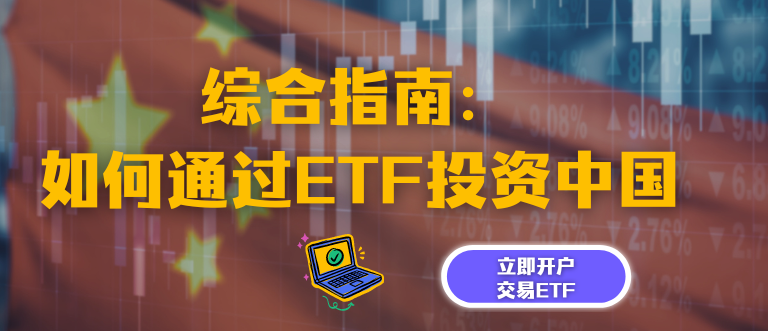Payment Date
Table of Contents
Payment Date
The payment date is a significant concept shared by the stock market and dividend distribution. The dividends, which are disbursed to shareholders in the event of a substantial profit for the company, are referred to as “pay dates.” These dates denote the dividend distribution schedule.
What Is a Payment Date?
When a stock dividend is announced, qualified investors will get their money on a certain day, called a payment date, sometimes called a pay or payable date. One month following the ex-dividend date is one possible time for this. It is important to remember that the stock price can drop on the dividend payment day to reflect the payout, even though investors haven’t received their funds yet.
Understanding Payment Date?
The actual mailing or electronic transfer of dividend funds to shareholders who are entitled to them occurs on the payment date of a stock’s dividend. On the payment day, dividends will be distributed to shareholders whose shares were owned on the record date. An ex-date, also known as the ex-dividend date, is the first trading day of a stock prior to its record date. Up to one month after the ex-dividend date, the dividend can be paid. It is common practice for companies to pay stockholders’ brokers rather than the shareholders themselves when the due date comes. Once the dividend has been declared, it will either be deposited into the shareholder’s account or, alternatively, reinvested.
On the dividend payment day, investors may observe price fluctuations in a company’s shares as a measure of the security’s market worth. As the dividend payment date draws near, those investors who were not eligible for the payout may purchase or sell shares. Because of this, the share price may stay high even after a dividend is paid.
Importance of payment date
You may reap several benefits as an investor. Rather of receiving the dividend in cash and then utilising that money to buy more shares, investors who prefer to expand their stock holdings using funds from dividend payments can simplify this process with automated dividend reinvestment.
Typically, there is no commission associated with company-operated DRIPs because they do not involve a broker. Since commission rates are proportionately higher for smaller purchases of stock, this feature is especially attractive to small investors.
Some corporations allow investors to buy more shares at a discount in cash, which is another possible perk of DRIPs. When opposed to purchasing shares in cash through a brokerage company, investors can acquire more stock holdings at a cost advantage with discounts ranging from 1% to 10% and the extra perk of not having to pay commission costs.
Important Dates for Dividend Payment
The dividend will only be paid out to shareholders whose shares were purchased prior to the ex-dividend date. There is usually a predictable pattern to the method and timing of dividend distributions. The company’s board of directors will announce the next dividend payment’s specifics. The date of notification or declaration for the dividend is this.
The date of record, or record date, is the deadline by which a shareholder must be entered into the books in order to be eligible for the dividend. The date of record is determined when the corporation issues the declaration. In most cases, this is also in line with when the corporation releases documents like proxy statements and financial reports.
The firm often establishes the ex-dividend date at this stage; the regulations of each stock market it is listed on dictate this. Any new shareholders who buy shares on or after the ex-dividend date will not be eligible for the next dividend payment. One business day before the date of record is often used to establish the ex-dividend date.
To review the four main points of a dividend distribution:
- When the dividend is announced by the board of directors, that is known as the declaration date.
- The new owner of the shares is not obligated to receive the dividend as of the trading date known as the ex-date or ex-dividend date. The preceding business day is known as the ex-date.
- The date of record is the day when the corporation verifies its records to determine who the shareholders are. To be eligible for a dividend distribution, an investment must be listed on that day.
- When the corporation sends out dividend checks to shareholders on file, that is considered the date of payment. This could happen up to seven days following the official date.
Example of payment date
Numerous other examples should be made whenever a payment date is drawing near or while formulating a strategy for your portfolio:
- Payout Dates: In order to plan ahead, investors need be cognizant of when dividend payments are due to be made. Investors looking to generate money through dividends may find this to be a significant consideration.
- The reliability and promptness of a company’s dividend payments might provide insight into its financial health. It could be an indication of a stable and successful business if dividend payments are consistent and predictable. Even if a payment date has been agreed upon, a corporation experiencing cash flow concerns may still cause payment complications.
- Considerations for Taxes: An investor’s tax burden may be affected by the timing of dividend receipts, as dividend income is usually taxable. If you wish to receive a dividend for a specified time for tax planning purposes, it is vital to analyse the tax consequences of that income.
- A company’s dividend policy, especially the regularity and stability of dividend payments, is information that investors should be cognizant of. Quarterly dividend payments are common for some corporations, while other companies may have alternative schedules.
Conclusion
When a business is ready to pay out dividends to its shareholders, that’s called the dividend payment date. Assuming their names are on file, eligible investors will get their portion of the declared dividend on this date.
Frequently Asked Questions
Dividends are distributed to shareholders on a specific date, known as the payment date. Shareholders can receive dividend payments by regular mail or electronic transmission.
When dividends are paid out, that’s called the payout date. To be eligible to receive a stock dividend, you need to be a shareholder prior to the ex-date. Shares purchased after the ex-dividend date are not eligible for that payout. Rather, it is received by the stock seller.
The ex-date, which is typically the preceding business day to the record date, establishes the payment eligibility of shareholders. When dividends are paid out, that’s called the payout date. To be eligible to receive a stock dividend, you need to be a shareholder prior to the ex-date.
An important aspect is that investors can utilise the fluctuations in a company’s stock price on the dividend payable date to assess the market’s stock assessment.
- Record date: To be eligible to receive dividend payments, one must possess shares as of the dividend record date.
- Payment date: Dividend payments are issued to shareholders who held their shares previous to the ex-dividend date.
Related Terms
- Options expiry
- Treasury Stock Method
- Reverse stock splits
- Ticker
- Restricted strict unit
- Gordon growth model
- Stock quotes
- Shadow Stock
- Margin stock
- Dedicated Capital
- Whisper stock
- Voting Stock
- Deal Stock
- Microcap stock
- Capital Surplus
- Options expiry
- Treasury Stock Method
- Reverse stock splits
- Ticker
- Restricted strict unit
- Gordon growth model
- Stock quotes
- Shadow Stock
- Margin stock
- Dedicated Capital
- Whisper stock
- Voting Stock
- Deal Stock
- Microcap stock
- Capital Surplus
- Multi-bagger Stocks
- Shopped stock
- Secondary stocks
- Screen stocks
- Quarter stock
- Orphan stock
- One-decision stock
- Repurchase of stock
- Stock market crash
- Half stock
- Stock options
- Stock split
- Foreign exchange markets
- Stock Market
- FAANG stocks
- Unborrowable stock
- Joint-stock company
- Over-the-counter stocks
- Watered stock
- Zero-dividend preferred stock
- Bid price
- Authorised shares
- Auction markets
- Market capitalisation
- Arbitrage
- Market capitalisation rate
- Garbatrage
- Autoregressive
- Stockholder
- Penny stock
- Noncyclical Stocks
- Hybrid Stocks
- Large Cap Stocks
- Mid Cap Stocks
- Common Stock
- Preferred Stock
- Small Cap Stocks
- Earnings Per Share (EPS)
- Diluted Earnings Per Share
- Dividend Yield
- Cyclical Stock
- Blue Chip Stocks
- Averaging Down
Most Popular Terms
Other Terms
- Adjusted distributed income
- International securities exchanges
- Settlement currency
- Federal funds rate
- Active Tranche
- Convertible Securities
- Synthetic ETF
- Physical ETF
- Initial Public Offering
- Buyback
- Secondary Sharing
- Bookrunner
- Notional amount
- Negative convexity
- Jumbo pools
- Inverse floater
- Forward Swap
- Underwriting risk
- Reinvestment risk
- Final Maturity Date
- Secondary Market
- Margin Requirement
- Mark-to-market
- Pledged Asset
- Yield Pickup
- Subordinated Debt
- Trailing Stops
- Stochastic Oscillator
- Bullet Bonds
- Basket Trade
- Contrarian Strategy
- Exchange Control
- Notional Value
- Relevant Cost
- Dow Theory
- Speculation
- Stub
- Trading Volume
- Going Long
- Pink sheet stocks
- Rand cost averaging
- Sustainable investment
- Stop-limit sell order
- Economic Bubble
- Ask Price
- Constant prepayment rate
- Covenants
- Stock symbol
- Companion tranche
- Synthetic replication
Know More about
Tools/Educational Resources
Markets Offered by POEMS
Read the Latest Market Journal

本文旨在为中级外汇交易者提供必要的信息和知识。它将涵盖我们上一篇文章 “五分钟看懂世界上最活跃的市场-外汇差价合约(FX CFD)...

解锁台湾股市的投资潜力!深入了解由强大的技术驱动型经济推动的股票市场,2023 年机械和电气设备将占出口的 69%。在政治稳定、投资者友好的法规和健全的法律框架下,探索台积电和富士康等全球顶级企业。台湾股市值得称赞的历史表现和在国际贸易中的的重要性使其更具吸引力。在这个科技实力雄厚、经济稳定、充满活力的股票市场中,抓住增长机遇!

了解外汇市场 外汇交易市场又称外汇市场,是一个买卖货币的全球性金融市场。它是全世界规模最大、流动性最强的金融市场,每日交易量超过 6 万亿美元。但外汇市场有一个重要却常被忽视的一点,就是它受交易心理的影响。在本文中,我们将探讨外汇市场的复杂性,还有把重点放在交易心理与传统交易策略共同发挥的关键作用...

五分钟看懂世界上最活跃的市场 -外汇差价合约(FX CFD)
外汇交易市场俗称外汇或外汇市场,是全球金融市场的支柱。它是世界上最活跃的市场,2022 年 4 月,全球交易额达到创纪录的每天 7.5 万亿美元[1] 。这个活跃的市场为交易者提供了利用货币价格波动赚取利润的机会。在本文中,我们将解释外汇市场的基本原理,助您了解其投资机制。 什么是外汇? 外汇市场是一个分散的全球市场,世界上所有货币都在这里进行交易...

随着通胀数据趋向 2% 的理想目标,人们普遍乐观地认为,在任何可能的降息之前,市场都不会受到不利影响。以下是美股市场2024年的一些重要事件,投资者在做出投资决策时可以参考留意。

根据《东南亚态势报告:2023》,失业和经济衰退是当前东南亚面临的主要挑战。各国采取了各种政策和措施以恢复经济,尽力摆脱新冠疫情的影响。尽管如此,越南在经济和社会方面展现出了令人满意的复苏迹象,经济增长逐季上升,成为世界经济的亮点之一。虽然全年GDP增速放缓至5.05%,低于政府6.5%的目标,但越南仍然是地区和世界经济增速较快的国家之一。






















